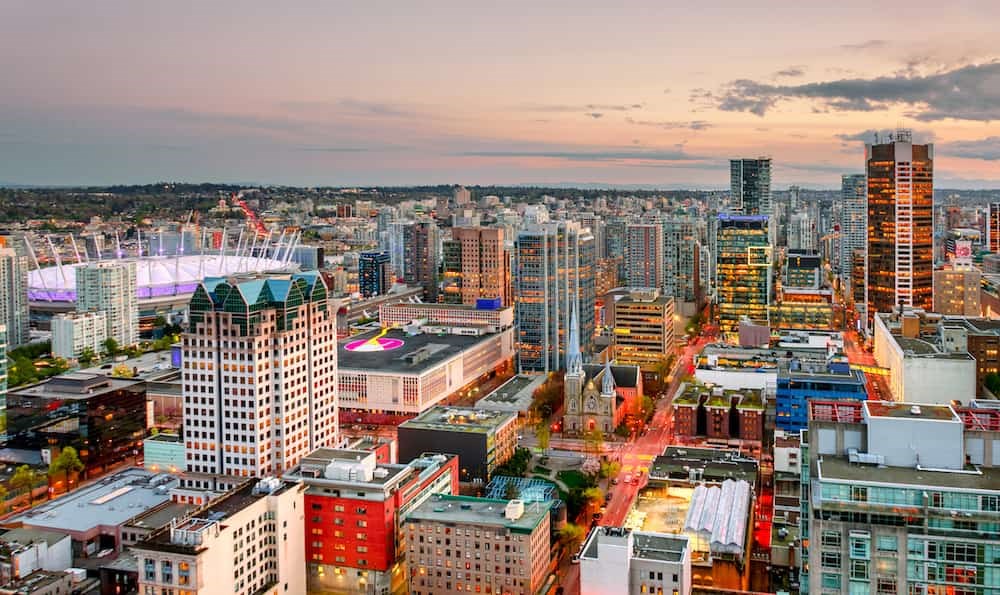
A new deal announced by the federal Liberals and New Democrats this week means B.C. may be getting a registry for beneficial ownership of corporations sooner rather than later.
In a confidence and supply agreement (CASA) announced Tuesday, the parties have promised to “implement a publicly accessible beneficial ownership registry by the end of 2023.”
The federal government originally pledged to have it up and running by 2025.
Beneficial owners are those who ultimately control an asset, such as a property or stocks, held in a trust or numbered company.
Without such registries, the search for Russian oligarchs, for example, has happened outside the view of the public. (B.C. requires companies to maintain a private record of beneficial owners.)
The B.C. government has already rolled out consultation on forming its own provincial registry. It recently stated it's waiting for the Commission of Inquiry into Money Laundering in B.C. to provide recommendations in its final report. The report is expected on May 20.
In a statement to Glacier Media, B.C.'s Ministry of Finance said: "While we’re unable to speak to any details about a federal corporate registry, we support Ottawa with their work on this matter and will continue to work in partnership with the federal government as it moves forward."
A Canadian public registry is expected to include data compiled by all the provincial corporate registries.
The announcement is part of a broad pledge under CASA for a “fairer tax system.”
A coalition of advocacy groups has been lobbying the federal government for years to establish a registry, similar to what’s found in the U.S. and many European countries.
“Countries around the world are picking up speed on publicly accessible beneficial ownership registries as critical tools to fight illicit financial flows, and it’s great to see Canada accelerate its timeline,” said James Cohen, executive director of Transparency International Canada, in a statement.
Experts estimate between $45 billion and $113 billion is laundered through Canada every year. Some of this money contributes to B.C.’s opioid crisis and fuels high housing prices, according to Cohen.
Sasha Caldera, campaign manager at Publish What You Pay Canada, says many provinces have been awaiting federal guidance on this file.
“A pan-Canadian agreement will make the registry cover as many incorporated entities as possible. Canada can start with a group of willing provinces to begin with, and we expect other provinces will join in given the due diligence benefits of a registry,” he said.
But a simple promise of a registry is not good enough, say the advocates, who dub Canada’s proclivity for opaque corporate oversight as “snow-washing.”
What is needed, the group argues, is the following:
- No paywalls, and easily accessible for all;
- Machine-readable and downloadable data;
- Staffing and mandate for a registrar to independently verify information, collect and securely store ID, and pursue instances of non-compliance;
- Strong penalties for false declarations, including for third-parties attesting to documentation;
- Use of Open Ownership’s Beneficial Ownership Data Standard;
- Unique identifier numbers for all beneficial owners.
In other words, a registry needs to be freely accessible, accurate and verifiable, they say.
Still, any registry will not be perfect as oligarchs and criminals may still lie if the benefit still outweighs the risk and cost of being caught, Caldera notes.
Cohen has both applauded and criticized B.C.’s efforts to establish a registry for beneficial ownership of residential property in B.C. — a key recommendation of a 2019 independent report to government on money laundering in real estate.
To search B.C.'s Land Owner Transparency Registry (LOTR), users will have to pay a $5 fee. Critics say the fee puts a chilling effect on public searches.
“It might sound like it's common sense that even $5 for a search is OK. But in reality, that deters civil society, and even journalists from looking... You add up a few searches, and then that becomes costly,” said Cohen.
Another problem with the land registry is a lack of proactive enforcement, said Cohen.
“One thing B.C. has got is the land ownership registry, that no one else in Canada has even though there’s legislation for it in Ontario that's just sitting around. But there's gaps in the B.C. registry as well, especially the pay-the-$5 paywall, and lack of data verification and proactive review by the registrar,” said Cohen.
B.C. Attorney General and Minister of Housing David Eby and Minister of Finance Selina Robinson have endorsed charging fees, claiming it is a “balance” of protecting privacy.
Federal beneficial ownership registry fast-tracked, what it means for BC - Delta Optimist
Read More
No comments:
Post a Comment